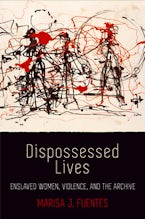Marisa Fuentes’ groundbreaking work, Dispossessed Lives: Enslaved Women, Violence, and the Archive (2018), provides a vital counter-narrative to the largely androcentric and Eurocentric canon of theological discourse (Cannon 1993). As womanist theology seeks to decenter the pervasive constructs of “Whiteness” and patriarchy within the field, Fuentes’ meticulous excavation of the archival silences surrounding enslaved women’s experiences offers an indispensable resource (Allard 2016).
Too often, the spiritual and embodied knowledges of African-descended women have been erased, distorted, or rendered peripheral within the Western theological tradition. (See also The Slave Metaphor and Gendered Enslavement in Early Christian Discourse, 2018). Fuentes compellingly argues that the violence and dispossession enacted against enslaved women’s minds, bodies, and very existence was systematically obscured through archival omissions and hegemonically-structured documentation practices.
By rigorously analyzing fragmentary sources with an intersectional lens, Fuentes amplifies the muted voices of these women, illuminating the harsh realities and insidious logics undergirding the dehumanizing systems of racial capitalist violence they endured. In reclaiming and reframing their narratives, she exposes the fallacy of treating modern philosophy and ethics as a primarily Western, masculinist genealogy disconnected from the foundational subjugation of the Black female body.
For womanist scholars and ethicists committed to radically re-envisioning theological praxis from the marginalized perspectives of African diasporic women, Fuentes’ pathbreaking work is crucial. It not only legitimates their epistemological standpoint but also powerfully articulates the urgency of centering their counterhistories as vital sources of spiritual insight, moral reckoning, and liberationist imagining.
Dispossessed Lives:
Enslaved Women, Violence, and the Archive

Dr. Nash, The Misogynoir to Mishpat (M2M) Research Network (c) 2024
Resources
Allard, Laura. “Yet, to their senses, are women made slaves”: The Embodied Politics of Slavery in The History of Mary Prince (1831), NCUR 2016.
Cannon, Katie G. “Womanist Perspectival Discourse and Cannon Formation,” JSTOR, Vol. 9, No. 1/2 (Spring – Fall, 1993), pp. 29-37
Fuentes, Marisa. Dispossessed Lives: Enslaved Women, Violence and the Archive. University of Pennsylvania Press, 2018.
Kartzow, Marianne. The Slave Metaphor and Gendered Enslavement in Early Christian Discourse: Double Trouble Embodied, London; New York: Routledge, xiii, 167. ISBN 9780815374657, 2018.
Sanders III, Ben. “‘Traditioning’ Blackness: a Theo-Ethical Analysis of Black Identity in Black Theological Discourse,” Digital Commons at Denver University, 2018
Springer, Jennifer Thorington. “Constructing Radical Black Female Subjectivities: Survival Pimping in Austin Clarkes’ The Polished Hoe,” JSTOR, Frontiers: A Journal of Women Studies, Vol 36, No 2 (2015), pp. 169-191

